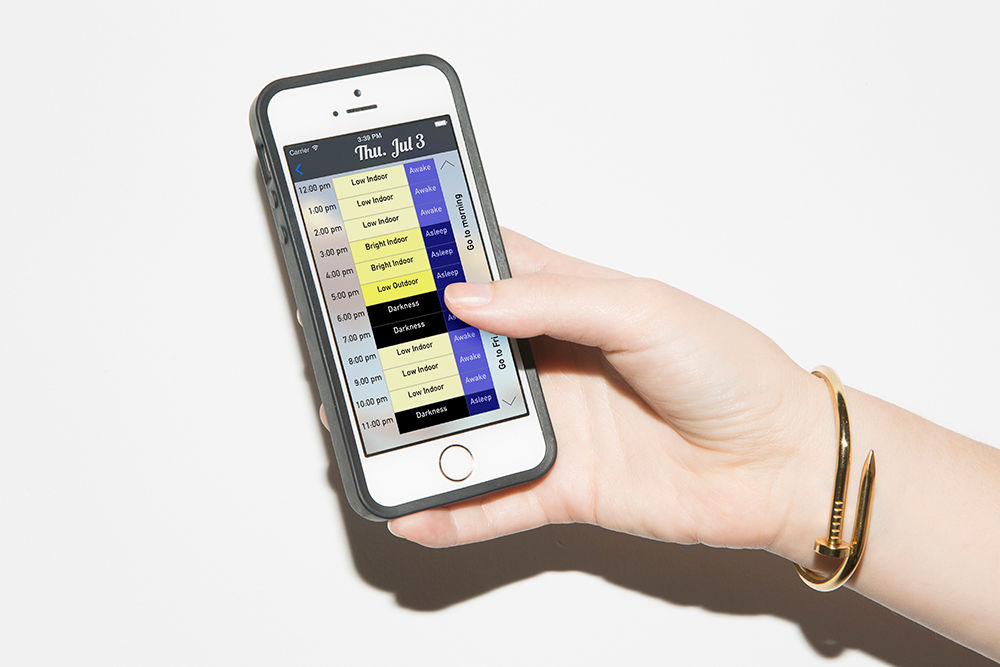Jet lag is a cruel mistress. Ask anyone who travels regularly beyond their home time zone—there is no outsmarting it. As soon as you think you’ve broken the code, you’re drooling on yourself in the backseat of a taxi or spiral-eyed at 4am in front of some bizarre foreign infomercial.
I write this while extremely jet lagged (the result of a recent 15-hour flight) and powering through the days that followed on account of work and a personal sadistic streak. Having lived overseas for a few years of my life, I’m pretty used to this feeling by now—the veil of fatigue, the near-constant babbling, the emotional peaks and valleys of sleep deprivation.
There’s also a little disappointment thrown into the mix this time; I’d hoped to employ a new secret weapon in my battle against the lag on this trip through an app developed by researchers at the University of Michigan, called Entrain.
I’d read about it while looking into the light therapy box Lumie (which is often used to relieve jet lag), and since Entrain was free, I decided it could stand in as a low-risk trial. Named after the process of entrainment, which is the “alignment of an organism’s circadian rhythm to that of the external rhythm in its environment,” the app aims to encourage optimal light exposure in order to cut down time zone adjustment. In other words, become a vampire before you depart in order to rejoin the living as fast as you can once you arrive.
Now in its second iteration, Entrain is based on cold, hard math, and the app design feels like it. After entering your destination (a few days before travel is ideal), things get complicated. You are asked to log your average daily light exposure into an hourly grid, leading this user to spend much valuable packing time questioning the lumen levels associated with “bright” and “low” light. With an equation previously used by the US military, Entrain calculates your approximate adjustment period. It then attempts to shift your internal clock with new recommendations for light/dark exposure, but often at times that are less than convenient. For example, the app may tell you to seek the brightest light possible at midnight—a challenge if one is sharing accommodations. The app is also not entirely clear about whether artificial light will suffice during these times. If you must be in bright light during recommended dark periods, orange tinted glasses are recommended, giving fresh insight into Bono’s sartorial quirks.
Ultimately, Entrain still feels like a case study masquerading as an app; in fact, there’s a hearty recommendation to send your data along to the University of Michigan at the end of the informational video. That’s OK, because it’s free. And with all this data collection, maybe there’s the promise of a more user-friendly jet-lag expeditor on the horizon. At present, Entrain is probably best used by those type-A travelers with a lot of free time on their hands. Most people won’t pause to log light/dark periods while working per diem or sightseeing, or take time to synchronize their alarm clocks with schedules that often feel complicated and counterintuitive. I didn’t and was left with the nagging feeling that I’d forgotten something, which is already how I feel about my passport, wallet, phone, etc. during those crazy, hazy days of jet lag.
—Lauren Maas
Photo by Tom Newton. For more on sleep, click here.

